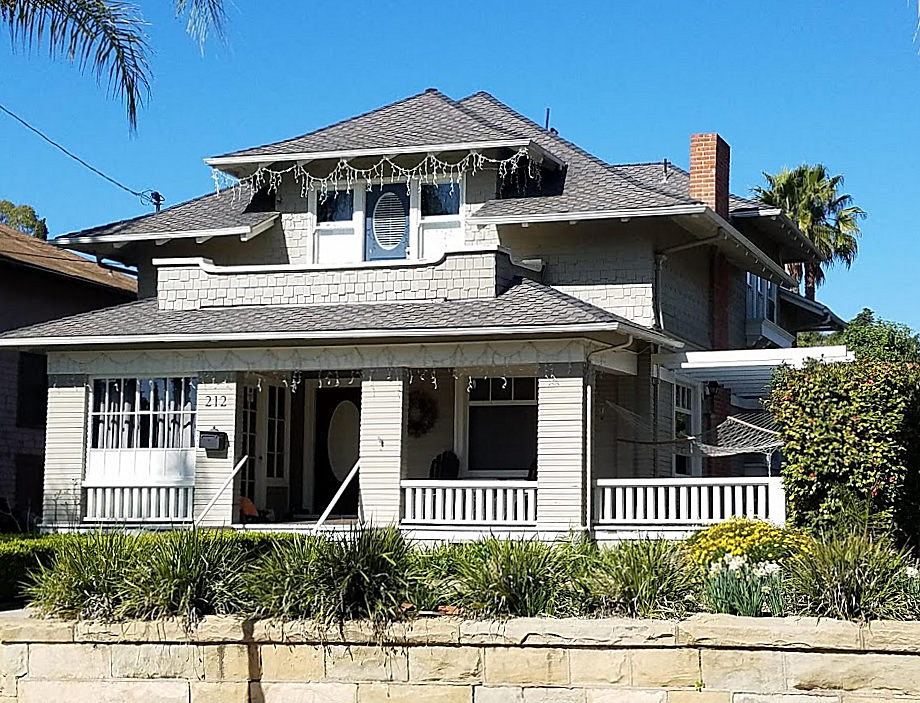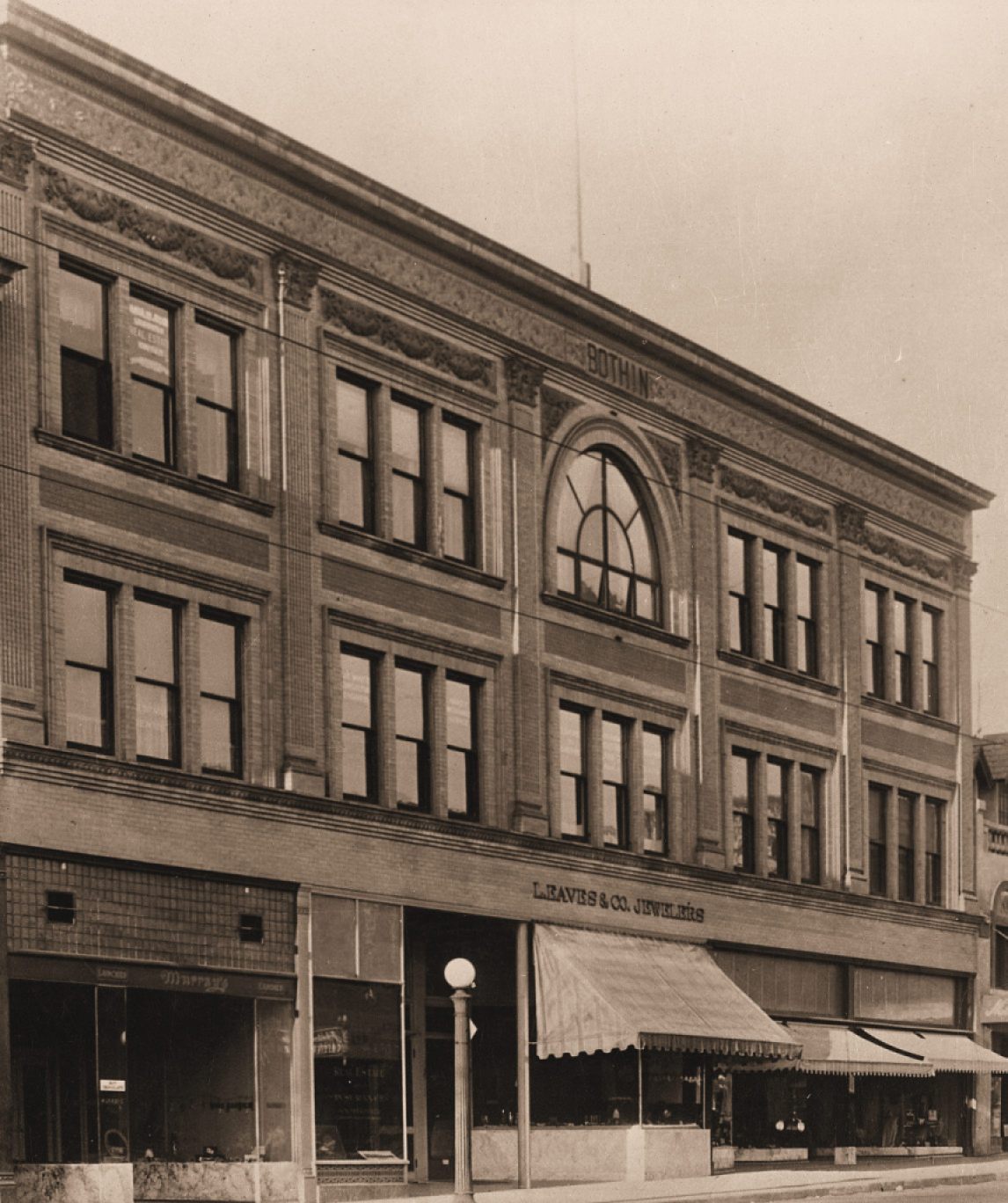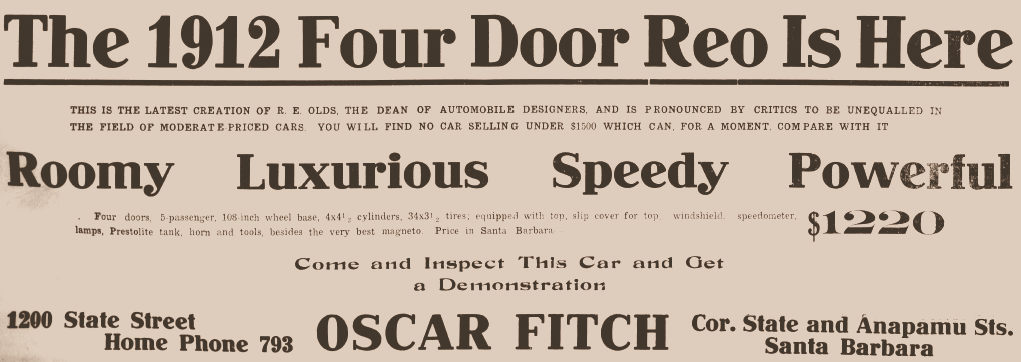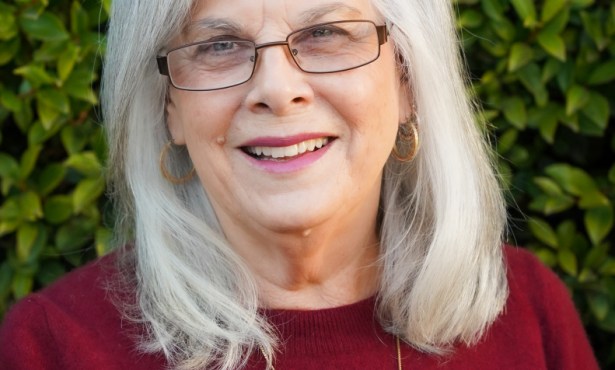Architect’s Ideal Craftsman Home
Craftsman Home Has Been Loved Through the Years

Address: 212 West Valerio Street
Status: Not on the market
Architect Adam Sharkey and his wife, Jill, had lived in Santa Barbara’s upper downtown neighborhood for years and had long admired the home at 212 West Valerio Street. “I imagined that one day we would live there,” said Adam. “We loved the large front porch, the architectural character of the house, the large cut-sandstone walls, and the front rose garden. So, when it was listed for sale in 2015, I told my wife that we had to buy it.”
The home at 212 West Valerio Street is a large Craftsman home, constructed in approximately 1908. The Craftsman style, popular from 1905 to 1930, typically features classic, clean lines in contrast with the ornate style of the earlier Victorian era.
Much larger than most other Craftsman homes found in Santa Barbara, this particular home is also noticeable for its hipped roof. The classic reference book A Field Guide to American Houses, by Virginia Savage McAlester, notes that only about five percent of Craftsman homes are of the two-story, hipped-roof variety.


Nevertheless, this home has many defining characteristics of the Craftsman style: a low-pitched roof with wide eaves supported by exposed rafters, square porch posts, and clapboard and shingle siding. The slightly flared roofline and elegant curved line on the second-floor porch give it an extra dash of curb appeal.
The city’s Historic Landmarks Commission has listed this home on its Structures of Merit list, and notes that this house “is characteristic of the type of houses built for Santa Barbara’s prosperous tradesmen and middle class during the early 20th century.” Fittingly, the first resident of 212 West Valerio Street owned a jewelry store, and the second owned an automotive business, both of which were located on State Street.
When looking into the origin of the house, it appears that a couple from Calistoga, California, named Oscar and Katherine Fitch bought a house on the large lot on the northwest corner of Valerio and De la Vina Streets in 1906. Later that year, they applied for a building permit to build another house on the west side of their property. The second home’s estimated construction cost was $4,000, according to the building permit. The home does not appear on the 1907 Sanborn Fire Insurance Map, so it must have been built shortly after that. While the Fitches’ original home no longer exists, this second home is the home now standing at 212 West Valerio Street.

According to the 1908 Santa Barbara City Directory, the Eaves family were the first residents of the home. Old city directories, available at the Santa Barbara Historical Museum, the Central Library, and the Genealogical Society library, provide great research tools.
The head of the family was Leonora Eaves, the owner of a jewelry and watch store established in Santa Barbara in 1883. Residing with Leonora were her daughter, also named Leonora, and her son, Albert T. Eaves, the deputy county clerk.
A few years later, the Eaves family moved out, and the Fitch family moved in. Yes, they moved from almost next door into their other house at 212 West Valerio Street. Oscar Fitch owned an automobile dealership downtown that sold REO cars, named for manufacturer Ransom Eli Olds, whose surname later morphed into Oldsmobile.

After the Fitches moved out, the house had several subsequent owners until 1947. In that year, Harry S. Wilson, a teacher at Santa Barbara Junior High School, and his wife, Myrtle W. Wilson, bought the home. They and their descendants owned the home for an amazing 68 years, up until 2015, when it was purchased by the Sharkeys. Clearly, the Wilsons’ tenure indicates that they also considered it an ideal house.
The Sharkeys have remained true to the home’s architectural style with the updates they have made. Experts agree, since one of their bathroom makeovers was featured in Old House Journal magazine.
Adam gives the following advice to owners of older homes: “Look to preserve and enhance the character of the best qualities of the house. Bring interior items up-to-date in ways that work with the original house.” Ideal advice, indeed!
Please do not disturb this home’s residents.
Betsy J. Green is a Santa Barbara historian, and author of Discovering the History of Your House and Your Neighborhood, Santa Monica Press, 2002. Her website is betsyjgreen.com.




You must be logged in to post a comment.